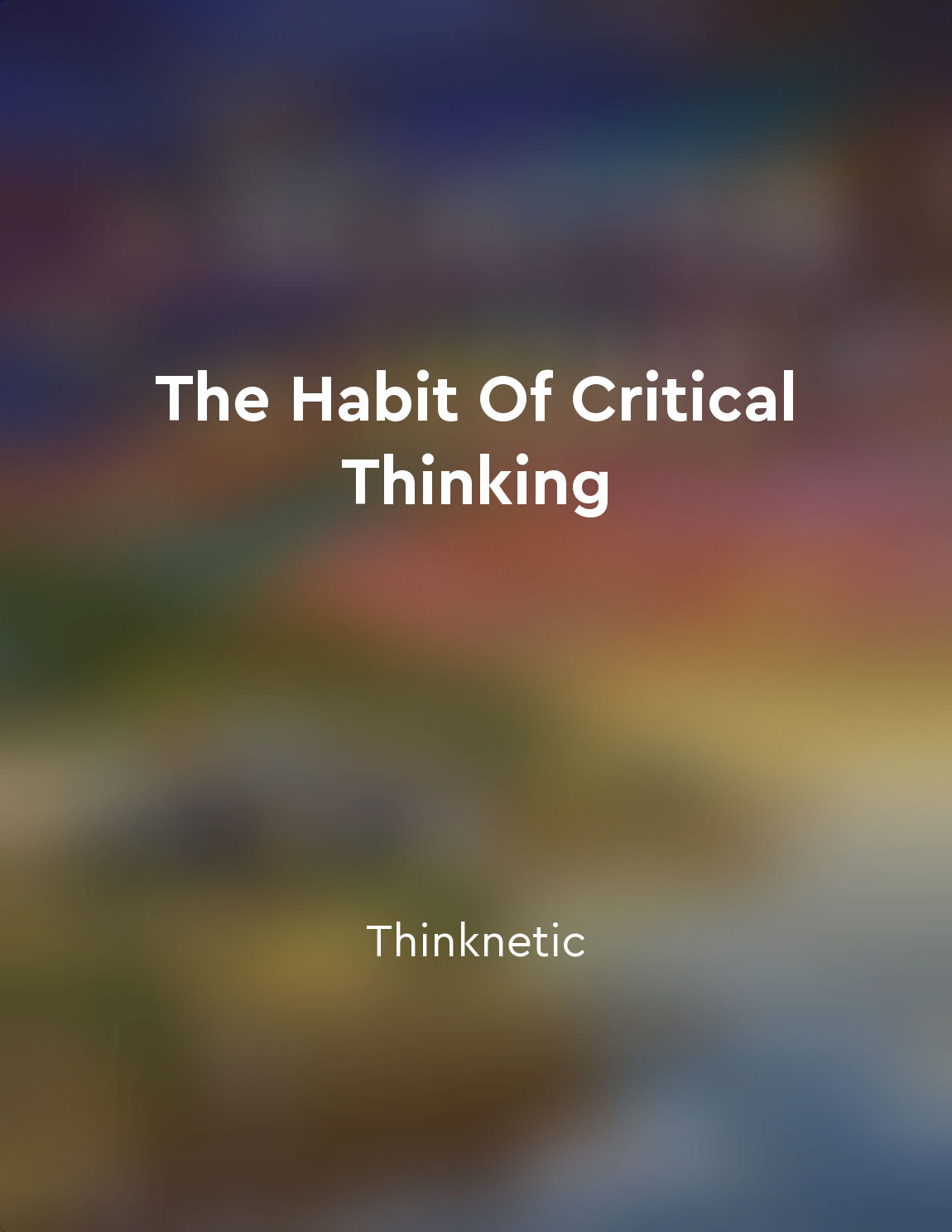Audio available in app
Evaluate arguments from "summary" of The Habit Of Critical Thinking by Thinknetic
To think critically means to evaluate arguments with a discerning eye. It involves carefully examining the reasoning and evidence presented in a claim to determine its validity and strength. This process requires us to go beyond surface-level analysis and delve deeper into the underlying assumptions and implications of the argument. When evaluating arguments, it is important to consider the context in which they are presented. This includes understanding the background information, the motivations of the person making the argument, and the broader social and cultural factors at play. By taking these factors into account, we can better assess the credibility and reliability of the argument. Furthermore, critical thinking involves assessing the logic of an argument. This means examining the structure of the argument to determine if it follows a coherent and rational line of reasoning. We must look for logical fallacies, such as circular reasoning or appeals to emotion, that can weaken the argument's overall effectiveness. In addition to logic, critical thinking also requires us to evaluate the evidence supporting an argument. This involves assessing the quality and relevance of the evidence presented, as well as considering any biases or gaps in the evidence that may undermine the argument's validity. By scrutinizing the evidence, we can determine whether the argument is well-supported and convincing. Moreover, critical thinking involves recognizing and addressing counterarguments. This means considering alternative perspectives and objections to the argument being presented. By engaging with opposing viewpoints, we can strengthen our own argument and develop a more nuanced understanding of the issue at hand.- Evaluating arguments is a central component of critical thinking. By carefully analyzing the reasoning, evidence, logic, and counterarguments of an argument, we can develop a more informed and insightful perspective on complex issues. It is through this process of evaluation that we can separate fact from fiction, truth from falsehood, and sound reasoning from fallacious thinking.
Similar Posts
Embracing diversity and inclusivity
Diversity and inclusivity are not just buzzwords thrown around in discussions on social issues. They are fundamental principles...
Ethics should guide our actions
In the pursuit of knowledge and progress, it is essential to remember that our actions should be guided by ethics. Ethics serve...
Practice intellectual humility
To truly excel as a thinker, it is essential to embrace the notion of intellectual humility. This means recognizing that we don...

Strive for continuous improvement
Continuous improvement is a fundamental concept in the realm of critical thinking. It involves the unceasing effort to enhance ...
Learn to control your impulses
Impulses are like wild horses, ready to gallop away at the slightest provocation. They can lead us to make hasty decisions with...
Emphasize the importance of empathy in understanding others' perspectives
To truly understand someone else's perspective, we must first learn to empathize with them. Empathy is the ability to put ourse...
Set boundaries and manage your time effectively
Setting boundaries and managing your time effectively are crucial components of living a balanced and fulfilling life. Boundari...
Superstition can lead to harmful beliefs and practices
Superstition can be a dangerous force in society, leading people to believe in harmful practices and beliefs that have no basis...
Collaborate with classmates for mutual benefit
Collaborating with classmates for mutual benefit is a powerful strategy that can enhance your learning experience and academic ...
General knowledge aids in problemsolving
General knowledge is like a toolbox that we carry with us throughout our lives. It consists of a wide range of information, fac...

